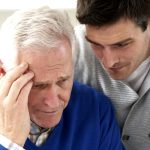What is social and emotional wellbeing?
Many Aboriginal and Torres Strait Islander people use the term social and emotional wellbeing. It describes the:
- social
- emotional
- spiritual and
- cultural wellbeing of a person
The term recognises their connection to:
- land (Country)
- sea
- culture
- spirituality
- family
- community
Past events affect your social and emotional wellbeing.
Another term used to describe a person’s social and emotional wellbeing is mental health.
What things help make me feel strong and resilient?
Things that can protect your strength and emotional wellbeing are:
- social connectedness and a sense of belonging
- connection to land, culture, spirituality, ancestry
- living on or near traditional lands
- self-determination
- strong community governance
- passing on of cultural practices
It’s important to look after your social and emotional wellbeing. Strength can come from family, friends, and community.
What factors can affect my social emotional wellbeing?
Factors that can affect the social emotional wellbeing of Aboriginal and Torres Strait Islander people include:
- widespread grief and loss
- impacts of the Stolen Generations and removal of children
- unresolved trauma
- separation from culture
- discrimination based on race or culture
- economic and social disadvantage
- physical health problems
- prison
- violence
- misuse of drugs and alcohol
The impact of racial discrimination is important. Most people who have experienced racial discrimination report feelings of psychological distress.
The Stolen Generations
Australian governments and churches took thousands of Aboriginal and Torres Strait Islander children from their families. These children are known as the Stolen Generations.
The exact number of children who were removed isn’t known. Very few families have been left unaffected. Some families had 3 generations of children removed.
The removal of children broke important cultural, spiritual and family ties.
This has left a lasting impact on the social and emotional wellbeing of Aboriginal and Torres Strait Islander peoples.
In 2008, Prime Minister Kevin Rudd offered a formal apology to members of the Stolen Generations. This was on behalf of the Australian parliament.
When should I see someone?
When you’ve got a lot going on it’s normal to feel sad, angry or stressed. But if you have been feeling sad for more than 2 weeks this could be a sign of depression. And if you find yourself worrying too much, you may be experiencing anxiety.
Depression and anxiety are common mental illnesses and can be treated.
If you feel like you need support or healing for any reason, there are people who can help you. A good place to start is your local doctor or Aboriginal Health Worker.
It might help to write down your symptoms before your appointment, so it’s easier to explain what you’re going through. If you are thinking about suicide, it’s important to get help and see a doctor as soon as possible.
If you are in an emergency, or at immediate risk of harming yourself or others please contact Emergency Services on triple zero (000)
How is mental illness treated?
Most mental illnesses can be effectively treated. If you get help, there’s every chance that your condition will improve.
Options for treatment include:
- lifestyle changes such as increasing time outside, eating a healthy diet, exercising, improving your sleep hygiene
- talk therapy such as cognitive behaviour therapy (CBT) and psychotherapy
- medications such as antidepressants
There are also:
- online resources with more tips on good mental health
- apps for building your emotional wellbeing
What can I do to improve my social and emotional well-being?
There is a lot you can do to improve your social and emotional wellbeing. This includes:
- staying connected to your family and friends
- finding someone you can talk to
- talking kindly to yourself
- seeing a doctor, Aboriginal health worker or counsellor
- staying connected to your land and community
- valuing your culture and spirituality
- eating healthy food
- getting enough sleep
- exercising every day
- avoiding using alcohol or drugs to make yourself feel better


